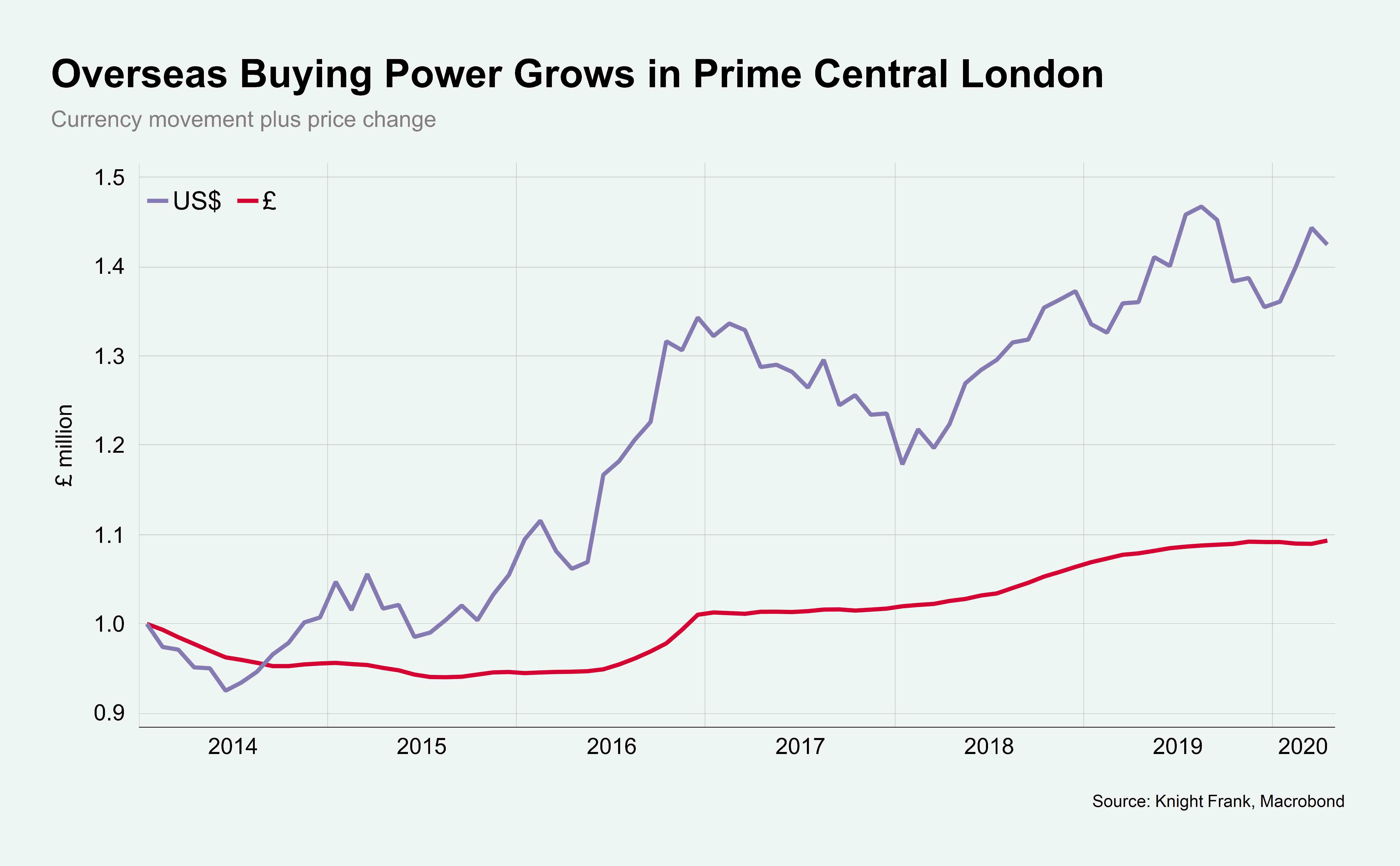Global demand for UK property grows as the pound comes under pressure
Speculation that the Bank of England may cut interest rates to below zero has sent the pound lower this month
2 minutes to read
Demand for UK property is rising among overseas buyers as the pound comes under renewed pressure.
Sterling was trading at $1.22 on Thursday morning, down from $1.26 at the end of April, due to the re-emergence of risks surrounding a no-deal Brexit and speculation that interest rates could turn negative to curb the economic impact of the Covid-19 pandemic.
On Wednesday, the UK government issued bonds with a negative yield for the first time ever in response to the Bank of England saying it would not rule out negative rates. Bank of England Governor Andrew Bailey confirmed negative rates were under “active review” during questioning from MPs.
“Prime and super-prime buyers are looking very closely at London because its credentials as a safe haven are enhanced at times of such global uncertainty,” said Rory Penn, head of Knight Frank’s Private Office. “The recent pressure on the pound has only made it more attractive.”
Recent falls compound what has already been a tumultuous few years for the pound, a trend that has supported global demand for UK property. US dollar buyers whose budget would have been the equivalent of £1 million at the start of 2014 have seen their buying power grow by 42% since, taking into account movements in the pound and property values, as the chart below shows. The increased buying power of those denominated in Sterling is explained by the fall in property values over that time.

Raul Cimesa, Head of London New Homes Sales at Knight Frank, said international demand has been robust throughout the pandemic.
“The current low interest rate environment and cheaper pound means there has been a steady flow of interest from international buyers throughout lockdown. Since government restrictions have been eased, those enquiry levels have picked-up further, particularly for completed units.”
The average rate for a five-year fixed rate mortgage at an LTV of 75% currently stands at 1.67% compared to 3.34% at the start of 2014, and low borrowing costs will prompt buyers in action, says Alex Ogario, Head of Private Office at Knight Frank Finance.
"Lenders are now clearing a backlog of mortgage applications that have accrued since the onset of the pandemic," Alex said. "Most lenders have an appetite to establish a pipeline of new business, and the international clients I’m speaking with on a daily basis have retained their passion for UK real estate. When you consider interest rates across currencies, it’s easy to see why many investors view the pound as undervalued.”